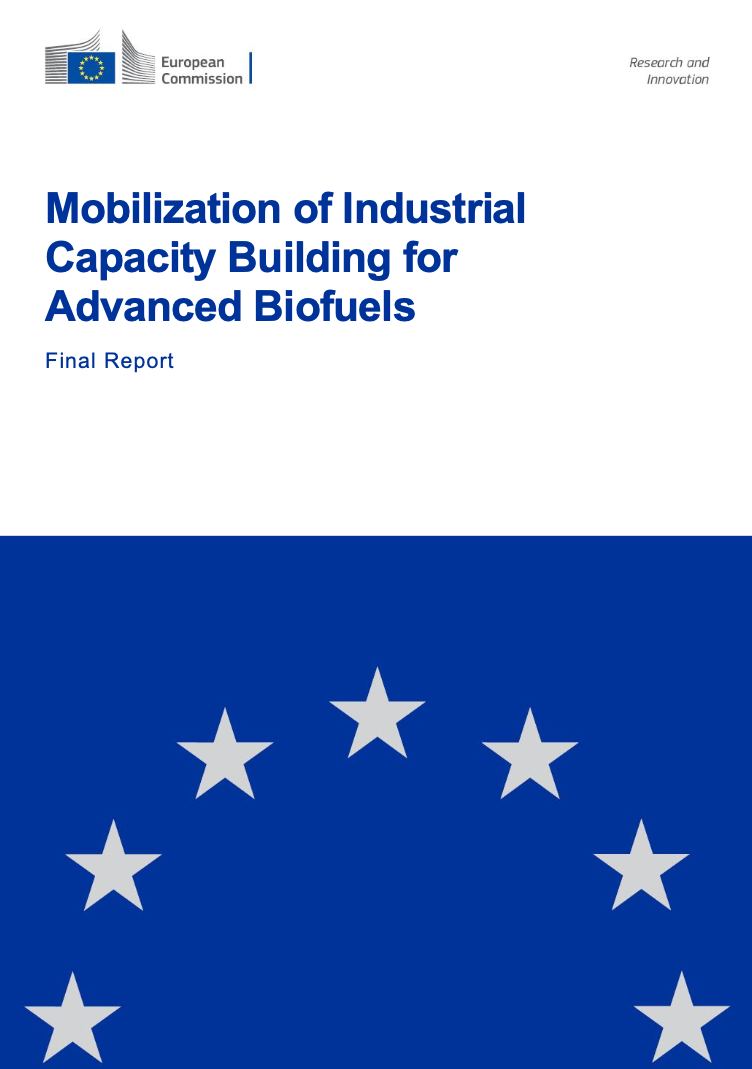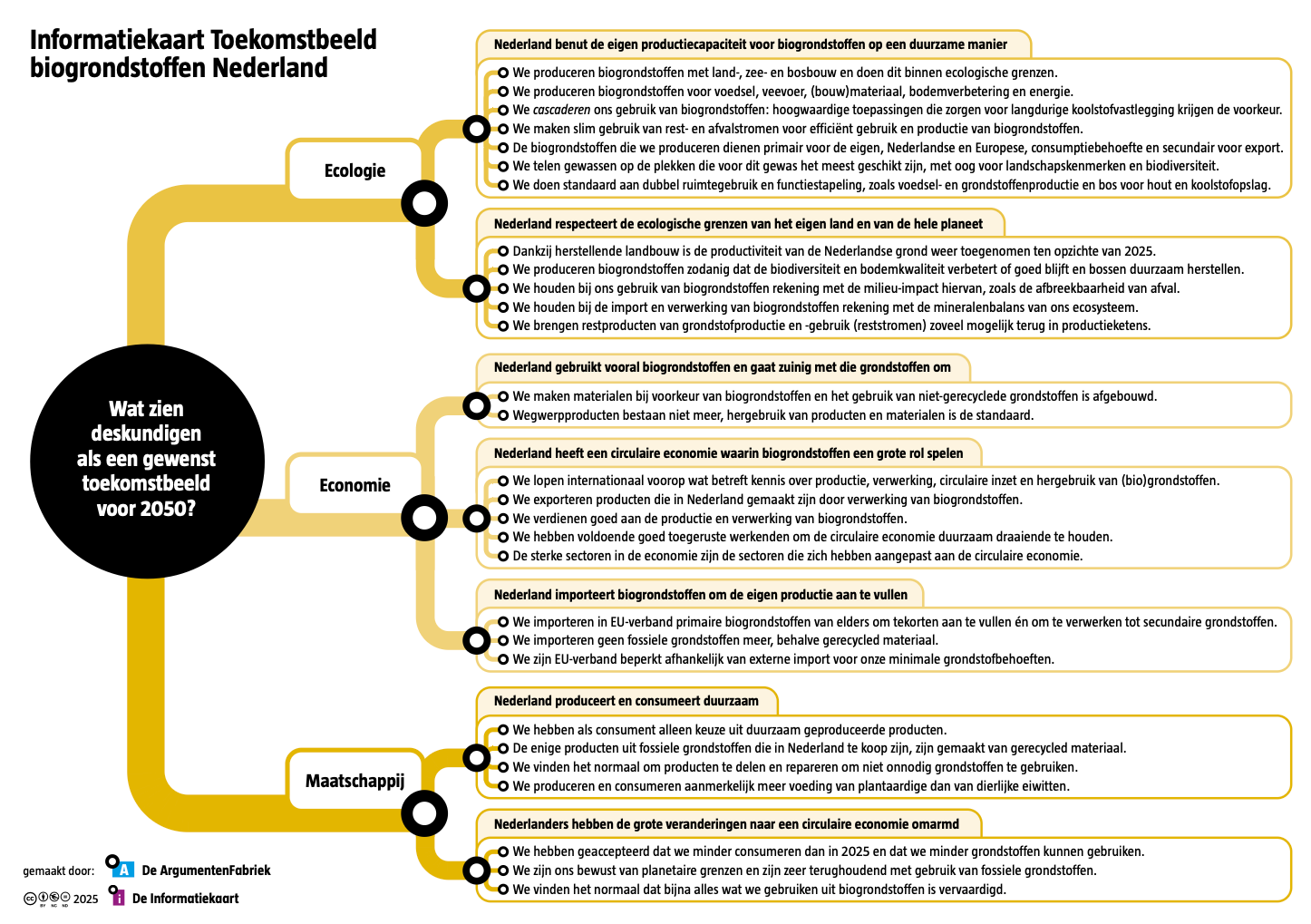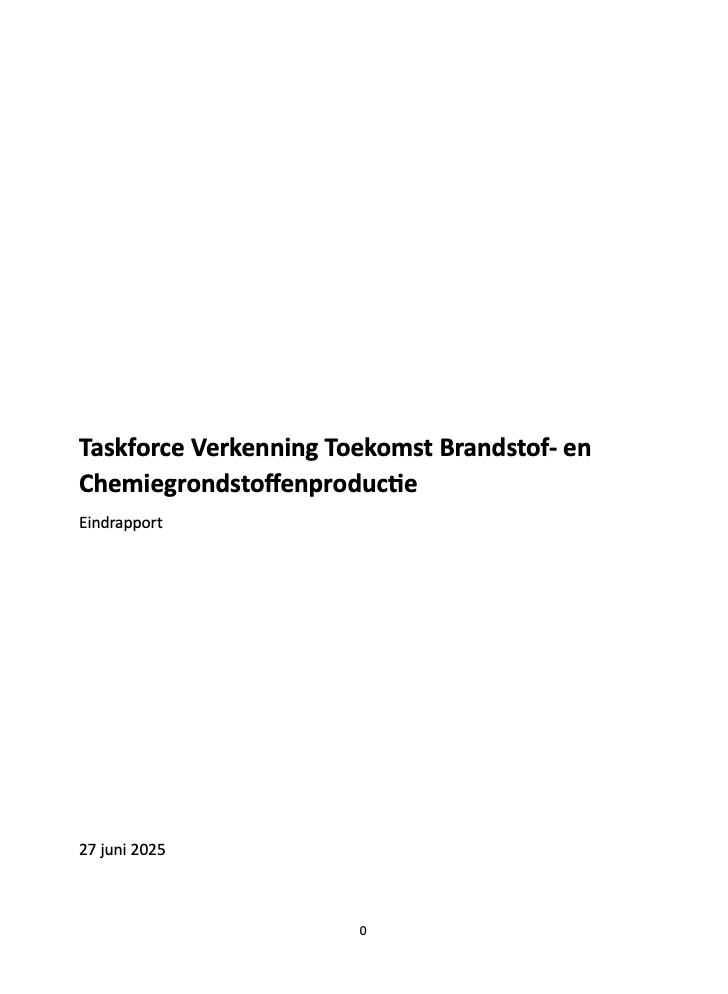Taskforce Verkenning Toekomst Brandstofen Chemiegrondstoffenproductie: Eindrapport | 2025

Executive summary
The Taskforce was formed at the request of the National Program Sustainable Industry (NPVI), which includes ministries (IenW, KGG), RVO, producers, ports, off-takers, institutes and NGOs. It was tasked to (1) assess the Dutch potential for renewable and decarbonised fuels and chemical feedstocks, and (2) identify public–private conditions to unlock investment.
It was a joint fact-finding effort that was complex due to differing views among participants and time constraints. However, the process created shared problem awareness and forms a good basis for follow-up action.
Why it matters
The fuel-and chemical feedstock producing sector is of global significance and should continue its important position to contribute to climate goals, strategic autonomy and welfare. Investments in renewable feedstocks are lagging because of uncertainty about the direction and speed of transitioning from fossil to renewable feedstock. This threatens the competitive position of the sector and risks higher import dependence, emissions leakage and economic loss.
Demand to 2050
Total fuel use decreases with increased electrification; and circular principles willgenerally lead to a decreased demand for virgin feedstock. However, a substantial residual demand remains that must be met with renewable feedstock and energy carriers. Current policy mandates only partially address this, and additional policy is needed to provide demand in the Netherlands and Europe.
Building up renewable fuel and chemical production
The Netherlands already has substantial renewable capacity and plans to scale further. Four complementary technology routes each have a role, likely insequence:
- Lipid-based(HVO, FAME, HEFA) with further growth dependent on new sustainable feedstock streams
- Sugar-based routes that hinge on unlocking residue/waste inputs
- Conversion of intermediates from lignocellulosics and renewable hydrogen carriers(pyrolysis, syngas, Fischer–Tropsch/methanol), some still at demo stage (TRL6–8). Likely involves imports of intermediates such as methanol or FT-crude
- System synergies – e.g. the use of biogenic CO₂, syngas, greenhydrogen and methanol infrastructure.
Fossil phase-down
Fossil fuel and chemical feedstock production in the Netherlands is expected to decline, but the pace is uncertain. Dutch refineries can remain cost-efficient, provided they decarbonise, others will close. Rapid, unmanaged closing carries risks: carbon and value leakage, loss of strategic autonomy and negative economic effects. A government-steered, controlled phase-down aligned with renewable build-out reduces these risks and limits import dependence.
Where sensible, existing facilities can be converted for renewable purposes, which appreciates existing infrastructure and production units. The success of such conversion depends on many factors, which form risks to investment. Government steering is needed to prevent lock-in or delay in investment.
Public and private enablers
Investment certainty is crucial. Functioning markets are essential to couple supply and demand. Off-take certainty is key for a sustainable business model. On the supply side, long-term availability and affordability of feedstocks from EU and imports is important.
Common EU norms, standards and certification enable quality, traceability and scale. Moreover,alternative financing instruments are needed as projects face demand, supply and technology risk.
A level competitive playing-field for both renewable and (transitioning) fossil BCP is essential, along side practical local enablers such as timely permitting and grid connections.
Recommended next steps
- Define a clear sector outlook and pathway for Dutch fuel and chemical production, which sets out a trajectory for managed fossil phase down and renewable build up. This should at least have attention for the role of existing facility conversion, the competitive position of the Netherlands. It should also address the gap between climate goals and scenarios and currently mandated demand.
- Ensure a level playing field in every transition phase. Prevent unfavourable operating conditions through EU trade and competition policy instruments.
- Integrated approach to transition, which addresses whole value chains instead of specific sectors or parts of a value chain (e.g. scope 1, 2, 3).
- Complete EU norms, standards and certification among others, for feedstocks,intermediates, conversion technologies, end products, chain of custody and traceability.
- Revise Critical Stock Obligation (CSO) rules to include renewable energy carriers to strengthen supply security.
Download
Click on the right hand side to download the full report (in Dutch).
Recente artikelen
EC DG Research: Mobilization of Industrial Capacity Building for Advanced Biofuels | 2026

Informatiekaart: Toekomstbeeld biogrondstoffen Nederland | 2025

SEANERGETIC: Zero-Emission Shipping Report - Accelerating Maritime Decarbonization


